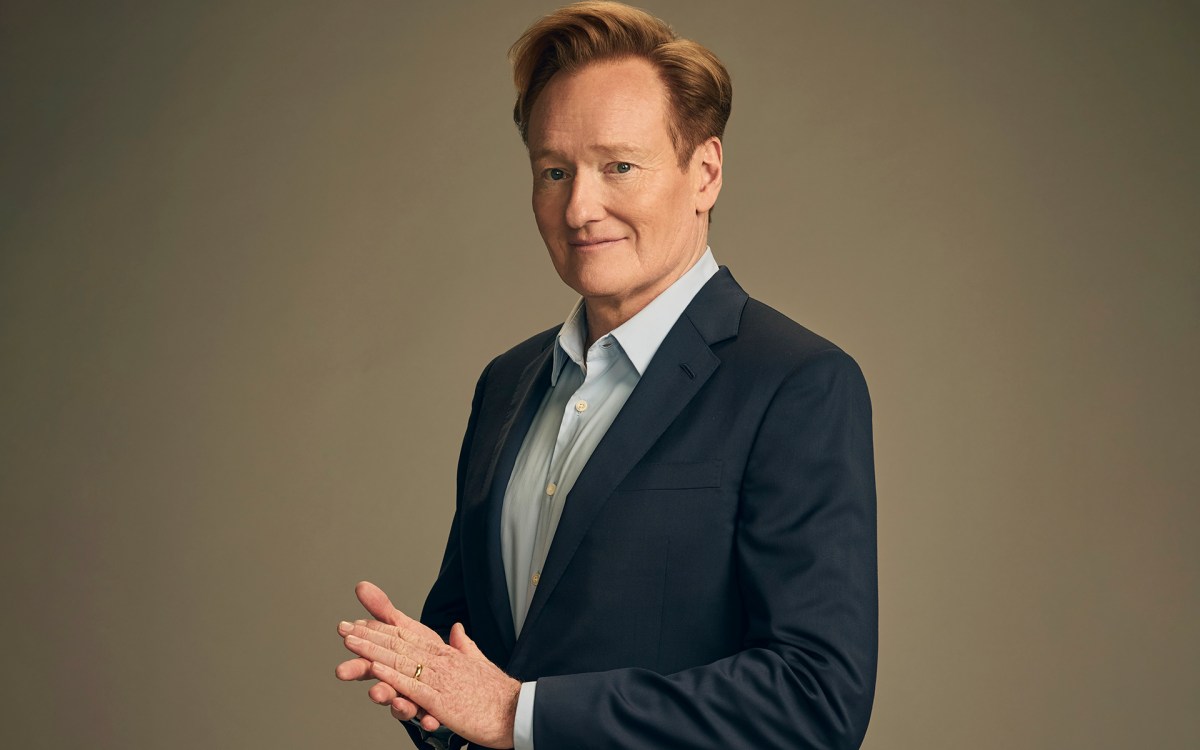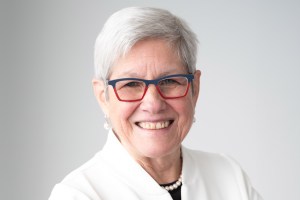Harvard, Cisco, BBN Technologies connect with Boston and Cambridge schools
Harvard University announced today (Sept. 22) a new partnership with the cities of Boston and Cambridge designed to bring the world to students — faster and clearer than ever.
Harvard will share its access to the super high-speed Internet2 Network connection with Boston and Cambridge schools, granting all 148 public schools in the two cities use of the most advanced networking consortium in the world.
In addition, Cisco is contributing Cisco TelePresence equipment to the John D. O’Bryant School of Math and Science and Cambridge Rindge and Latin School enabling the students and teachers to connect with people around the globe. This interactive collaboration tool will put them at the forefront of teaching and learning. Raytheon BBN Technologies, an advanced networking research company, has donated the networking equipment that provides connectivity to Cambridge.
“This exciting technology not only provides our Boston Public Schools students with exceptional educational opportunities, but furthers the City of Boston’s position at the forefront of the technology frontier. Together with Harvard and Cisco, we are opening the globe to our students and connecting our city to the world,” said Mayor Thomas M. Menino at a celebration of Harvard’s teaching and learning partnerships with the Boston Public Schools. The fete included a demonstration of the new technology at the O’Bryant School of Math and Science.
Internet2 is a high-speed, high-performance national network dedicated to serving the research and education community. It brings together a broad range of the education sector, including K-12 schools, colleges and universities, libraries, and museums, providing them with a platform for collaboration and distribution of content. Harvard, which has provided the high-speed connection for the schools, will continue to host the school systems at no cost to either city. This collaboration also grew out of the Global Environment for Network Innovations (GENI) project, which Raytheon BBN is leading. Funded by the National Science Foundation, GENI is a unique virtual laboratory for at-scale networking experimentation where the brightest minds unite to envision and create new possibilities of future Internets.
Cisco TelePresence technology in the O’Bryant and Cambridge Rindge and Latin schools will enable teachers and students to work in real-time with experts and lecturers, and other classrooms locally and around the globe; access online multimedia education materials, and to connect to new professional development opportunities — all with a simple phone call.
“Putting cutting edge technology in the hands of Boston teachers and students is an exciting new chapter in Harvard’s long and fruitful partnership with Boston schools,” said Harvard President Drew Faust. “The Cisco TelePresence installations will connect classrooms in Boston and Cambridge to each other, to universities like Harvard, and to learning opportunities around the globe.”
“Through Cisco TelePresence, schools and universities are able to foster a more collaborative and interactive teaching and learning environment to better equip students with the skills required for success in the 21st century,” said Ken Gaines, Cisco’s vice president of state and local government, and education. “We are pleased to work alongside Harvard University to provide the Boston and Cambridge Public School Systems with access to new interactive collaboration tools that extend the in-person teaching and learning experience beyond the traditional physical classroom.”
President Faust also announced that as part of the new partnership with the Boston and Cambridge schools, Harvard will convene an advisory group that will identify opportunities to use these new technology resources to further strengthen Harvard’s teaching and learning partnerships with Boston and Cambridge. Cisco is providing teacher training on the new TelePresence units and ongoing support as needed. Harvard is also convening Boston and Cambridge educators to present Internet2 resources and offer training.
This new partnership is just the latest in a long and robust relationship between Harvard and the Boston and Cambridge school systems.
“This technology will help our students connect with their peers, authors, and scholars around the globe,” said Boston Public Schools Superintendent Carol R. Johnson. “We are fortunate to be supported by organizations such as Harvard University and Cisco as we work to make all of our schools centers of excellence in every way.”
“Technology is exciting but it isn’t a goal in and of itself,” said Cambridge Superintendent Jeffrey Young. “Making it easier for students and teachers to access and participate in the world of ideas as players not just observers is what matters. These resources can break down the walls of the classroom and extend teaching and learning to every corner of the globe.”
This partnership between Boston and Harvard is just the latest example of a relationship that has extended over nearly four centuries. A new report released by Harvard today chronicles the depth and breadth of that relationship, cataloging the 123 educational programs that take place in Boston schools or engage Boston students. Called Partnerships for Progress, Harvard Teaching and Learning Partnerships: Boston, the report gives readers the opportunity to learn about key initiatives and how they’ve strengthened both the Boston and Harvard communities.
Menino, Faust, and Cisco representatives joined BPS Superintendent Carol Johnson at the O’Bryant and CPSD Superintendent Jeffrey Young for a 30-minute TelePresence tour that connected teachers, students, and administrators with several destinations while gathered in the in the 70-seat amphitheater classroom. The O’Bryant School’s headmaster, Steve Sullivan, guided the room through a series of conversations with educators and students in Boston and beyond.
After an initial call across the river to connect with Harvard Graduate School of Education Dean Kathleen McCartney and Cambridge Superintendent Jeffrey Young, Sullivan reached out to Joan Reede, dean for Diversity and Community Partnership at Harvard Medical School, who oversees programs that give Boston children access to real-world science experiences at Harvard and in Harvard labs. O’Bryant geometry teacher Jim Munsey then took the stage and on a call to students in Phoenix, taught a mini-lesson on probability with a magic trick.
“This is a dream come true,” said Sullivan, who noted one of the school’s goals this year was to increase its partnerships. “There are endless possibilities now. We can span time as well as distance in a way that goes beyond traditional learning and gives us access to new opportunities and cultures that we only dreamed of connecting with before.”
This technology partnership grew out of collaboration that began more than a year ago linking Harvard, the Cambridge and Boston school systems, with funding from Raytheon BBN Technologies, to provide the connectivity to the Internet2 Network. Building on access to Internet2, Cisco offered to establish a leading Cisco TelePresence capacity at a school in each city. The partnership comes at a time when Harvard itself is growing its use of this technology as well. Harvard currently has 11 TelePresence units throughout its campus.
“This network will provide fertile research ground for students to explore their ideas over the next few years,” said Chip Elliott, GENI project director.
About Cisco TelePresence Technology: Cisco TelePresence systems combines innovative real-time video, audio, and interactive technologies to give people in distributed global locations a wide variety of face-to-face collaboration experiences. It enables new types of collaboration applications that are transforming business processes, saving resources, improving productivity and helping organizations grow globally.
About Internet2: Internet2 is a not-for-profit advanced networking consortium composed of more than 200 U.S. universities in cooperation with 70 leading corporations, 45 government agencies, laboratories and other institutions of higher learning as well as over 50 international partner organizations. Internet2 members leverage this high-performance network and worldwide partnership to support and enhance their educational and research missions. The Boston and Cambridge schools now have 1GB (gigabit) Ethernet connectivity to Internet2.
About “Boston Broadband” and Internet2: The goal of Mayor Menino’s “Boston Broadband” initiative is to close the digital divide by increasing access to, and adoption of, broadband technologies in all of Boston’s neighborhoods and communities. The City of Boston’s Department of Innovation and Technology and Boston Public Schools collaborated to connect the City’s fiber network to Internet2, with Harvard sponsoring the City’s Internet2 connection at the Northern Crossroads. This connection opens the research and educational resources of Internet2 to the City of Boston and advances Mayor Menino’s commitment to enhance access and the adoption of cutting-edge technology citywide.
About the Cambridge Internet2 connection: The City of Cambridge, Mass., BBN Technologies, a wholly owned subsidiary of Raytheon Company and Harvard University collaborated on the joint technology project to provide the City of Cambridge’s public schools with access to Internet2. BBN Technologies was awarded a National Science Foundation grant for the GENI project.
The Internet2 connection is provided thru the Northern Crossroads, the New England Regional Aggregation Point for Research Networking in the Northeast U.S. The Northern Crossroads members include University, K-12, Government, Corporate and Hospital members throughout the Northeast connected over a high performance network. Harvard University is the network operations center for the Northern Crossroads (NoX) and its members. www.nox.org
About the O’Bryant School: The John D. O’Bryant School of Mathematics and Science is an exam school in which more than 95 percent of students score at advanced or proficient levels in the state MCAS exam and go on to four-year colleges. The school is committed to achievement, academic excellence, and to ensuring that all students learn and succeed. The school was recently designated as a 2010 Blue Ribbon School by the U.S. Department of Education, the highest honor an American school can achieve. This prestigious award recognizes public and private K-12 schools that are academically superior in their state or that demonstrate dramatic gains in student achievement. The O’Bryant School fulfills both of these requirements. The O’Bryant School will receive this award from the U.S. Secretary of Education Arne Duncan in Washington, D.C., in November.
Contact: Lauren Marshall, 617.495.1585




